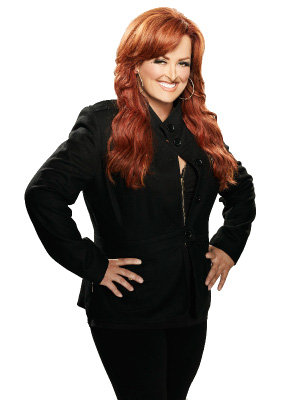FAMILY - EDUCATION & ENRICHMENT
Live & Learn
September, 2013 - Issue #107
 Courtesy of Shutterstock |
As a parent, you probably have a lot of questions about your kid's school experience: What is my child's teacher like? Who do they play with? What are they learning? What might not be on that list - but should! - is this quandary: "Is the curriculum used to teach my child relevant?"
But wait: First you must determine what the curriculum should be relevant to.
If you're a parent who wants to put their child on a trajectory for success in the 21st century, there's your answer: curriculum should be relevant to success.
Here are the questions you should ask your child's teacher - or reflect upon them yourself, based on your own observations of classroom and/or homework patterns:
• Is this curriculum relevant to my child's success in high school, college and beyond?
• Is this curriculum relevant to my child's ability to successfully, safely, thoughtfully and critically engage with today's technologically-driven world?
• Is this curriculum relevant to my child's future career success in a fast-paced, multi-lingual global marketplace?
• Is this curriculum relevant to my child's successful ability to clearly, persuasively and safely articulate themselves in speech, writing and argument across a variety of in-person and technologically-mediated platforms?
• Is this curriculum based on the proven-successful pedagogical best-practices of today?
Determining the answers to these questions can be easier when you know what to look for. You can use Legacy Christian Academy's kindergarten-through-eighth-grade curriculum as an example of relevancy for success.
After just a few minutes on the Legacy campus, you'll note the following: children as young as kindergarten learning Spanish and Mandarin, the global language of business; kids safely engaged in technological development, creating PowerPoint demos, building computers from the ground up and working on NASA space projects; children having fun "playing" with Gigi, the mascot of ST MIND Math, a spatial-temporal math program that has been proven to raise test scores in Ivy League studies; kids "learning how to learn" in small groups lead by passionate teachers who have experience preparing students for success in the academically-competitive realm of high-school honors and AP courses; advanced-math students taking 10th-grade Geometry in eigth grade; and much more. 257-7377
 Courtesy of Shutterstock |
Transitional kindergarten is a modified kindergarten curriculum that is designed for learners turning 5 this fall, between October 2 and December 2.
Why is this program so important? For years, children in California were allowed to enroll in kindergarten if they turned 5 before December 2 of the academic year. While technically eligible for kindergarten, many children born towards the end of the calendar year have been shown to struggle academically, socially and emotionally. Think about it: Most kindergarten classrooms have children born in January and February. These kids are almost a year older than their October- and November-born classmates.
While not an issue for adults, it is a huge difference for young children. Does this mean that all children born "late" in the calendar year are not ready for kindergarten? Of course not! All children are different and all kindergarten classrooms are, in essence, multi-age classrooms. Much of their success in the classroom simply depends on the learners' maturity, language ability and personality.
For the 2013-2014 school year, the state-mandated cut-off date is moving up once again; all incoming kindergarten learners must turn 5 by October 1. Children born between October 2 and December 1 are now eligible for transitional kindergarten, or TK. TK classrooms at SCVi will be designed around the needs of these young learners. At the end of the school year, children will have received a developmentally appropriate-education that will ready them for the K/1 community.
SCVi, a free, publicly-funded charter school in Castaic, provides transitional kindergarten in both classroom and homestudy environments. School begins on August 27, so don't hesitate to sign up. It is a great way for your child to join the SCVi community and seamlessly transition into their usually-wait-listed K/1 community for kindergarten the following year.
If you are interested in registering your child or have questions, e-mail registrar@scvi-k12.org. Don't miss out; registration is on a first-come, first-served basis! It closes when the class is filled.
Learn to Use that Fancy Camera of Yours
So you have a fancy camera. Great! But you have no idea how to use it. Ugh! Fret no more. If you don't know an ISO from PMS (But you're certain that not knowing what an ISO is has lead to PMS-like symptoms!), do what we did: head over to the SCV Center for Photography and let Mel help take the mystery out of your camera for you.
His three-week (one-night-per-week) Basic DSLR Camera Class will make you feel like a pro in no time. Learn the answers to burning questions like: What is ISO, aperture, shutter speed and white balance? Better yet, you'll learn how to put them to great use. Not sure how or when to use your flash? No worries, you'll cover that as well, along with composition, and you'll score a ton of tips that will have you taking awesome photos immediately. www.scvphotocenter.com
 |
Meet Wynonna and Support K-12 Arts Education
On Friday, September 20, at the Santa Clarita Performing Arts Center at College of the Canyons, join local fans at the "Celebrating Wynonna Pre-show Dinner Party." Your evening begins with cocktails and dinner, then concludes with a photo opportunity with Wynonna. You can then take a seat to watch this timeless performer sing her heart out with The Big Noise. This tax-deductible donation benefits the K-12 Arts Education Outreach Program. Tickets are $75 per person (Concert tickets can be purchased separately.) by calling the PAC Box Office. 362-5304
Acting and Modeling Classes can Really Pay Off
If you or your child dream of taking to the stage, starring in a movie or commercial, or serving as "the face" of a favorite brand, you probably think that the benefits of these activities are limited to the more-obvious realm of fame and fortune.
What many miss are the incredible life skills, transferable to every corner of the universe, that are developed during creative training.
Students of the Santa Clarita School of Performing Arts, for example, display a tangible increase in self-esteem, confidence and emotional development. The academic benefits that come with memorization and presentation skills can also be profound.
As parents ready to send their children back to school, keep in mind the roads they'll have to cross both socially and academically. Children who are shy, introverted or hesitant to meet others in the eye can be given the gift of speaking with confidence. Those who search for a personal and social outlet come out of their shell and even begin performing better on school work once they discover a "home away from home" at SCSOPA, where classes and curriculum are designed both for the entertainment industry and for fun. 222-7910
Is College in your Child's Future?
The cost of just one child's college education can be staggering - tuition and fee hikes regularly outpace inflation. Average college costs continue to increase at a 5.2-percent annual inflation rate.
Start saving early. It's common to assume that saving will be easier in the future when you're earning more, but as your family and income grow, so do your expenses associated with your standard of living.
Put time on your side. When you start saving early, college savings can earn substantially more over time through the power of compounded growth. For example, suppose you start putting aside $100 every month for an 8-year-old child. Assuming a 5-percent annual growth rate, you'll save $15,592 by the time your child is ready for college but will have invested only $12,000 out of pocket.
If you wait until your child is 15 to start saving, you'll have to put more money aside each month to save the same amount, and your out-of-pocket investment will be much greater. For example, at the same 5-percent annual growth rate, it would take $400 per month to save $15,556 in time for college, and you'd have invested $14,000.*
*This information is hypothetical and is provided for informational purposes only. It is not intended to represent any specific return, yield or investment, nor is it indicative of future results.
This article was written by Wells Fargo Advisors and provided courtesy of The Shipper/Koester Group of Wells Fargo Advisors. 510-0445
Investments in securities and insurance products are not FDIC-insured/not bank guaranteed/may lose value.
Wells Fargo Advisors, LLC, Member SIPC, is a registered broker-dealer and a separate non-bank affiliate of Wells Fargo & Company.
Thinking of Going Back to School? Don't Miss this Open House!
The Dr. Dianne G. Van Hook University Center at College of the Canyons will hold an open house on Wednesday, September 11 from 4 pm to 7 pm. The open house will provide prospective students with information about the more than 40 bachelor's and master's degree programs offered through the Center by partner institutions, including from CSU Bakersfield, CSU Northridge, CSU Los Angeles, University of La Verne, Brandman University (formerly known as Chapman University) and National University. Attendees will be able to talk to university representatives, learn about financial aid programs, meet with counselors and fill out admissions applications. In addition, attendees can learn about the many new programs to be offered in the center. 362-5150
 Courtesy of Shutterstock |
College or Bust!
But without the Debt, Please
There's been a lot written lately about the rise in unemployment for the newly-college-educated set. In fact, there's been such push back on the "everyone who wants to go to college, should go to college" front that some have suggested that college may no longer be "worth it."
First, let's remember that the rate of unemployment for those who did not graduate from college is still higher, all other variables being the same, than for those who did. And a college degree is nearly always essential for the types of higher-earning careers of the 21st century.
The downside of college, of course, is that young adults leaving college have one big, fat drawback that could hinder their future personal and professional success: debt.
Kids today are graduating, on average, with upwards of $30,000 in student loans. This gargantuan debt burden is delaying their entry into marriage, parenthood, homeownership, continuing education and - often enough - the career of their dreams. After all, when the debt collector is banging on the door, a 21-year-old grad is going to choose whatever job is available, even if that job doesn't put them any closer to the career of their choice.
What can we do to prevent this debt debacle for our own children? First, start planning early so that neither parent nor child has to carry the damaging debt load after graduation. Meet with college-planning professionals who can help you create a plan now. These same pros can help find colleges and universities that can provide your kid with a better financial aid package. Help your child identify their most college-craved skills - whether they be academic, entrepreneurial, musical or athletic excellence - and give them the tools and encouragement to best develop them. Search for local, regional and national scholarships - and apply! Every dollar paid toward tuition now is another dollar that won't be charged interest six months after your kid earns a diploma. Your child can take AP or community-college classes now to earn college credit for pennies. Take enough classes in high school and during summer vacations and they can graduate from a university a full year early, saving tens of thousands of dollars.
Whatever you do, do it now, do it creatively and do everything you can to earn that valuable degree without the giant debt!
College Planning Experts 295-9946
|
||||||||||||||||||||||||||||




